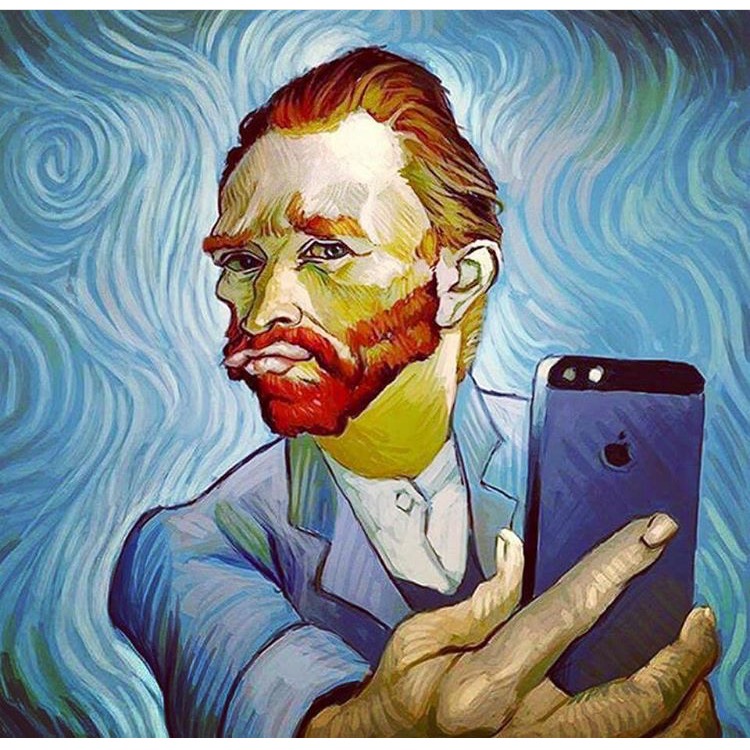With the rise of social media, society has changed drastically and individuals are often, and sometimes rather unknowingly putting their lives center stage for the public. Currently, social media is seen as somewhat a “conceptual excess by collapsing boundaries of public and private, real and virtual” (Douglas). The selfie is a relatively contemporary concept and is prevalent among young people who are seen to be “representing their own coming of age processes” and navigating the complexities of life (Douglas). Although selfies are frequently viewed as negative and “motivated by vanity, narcissism and fakery” (Douglas), selfies can also be seen as another form of life narratives and positive path to self-identity.
Social media platforms such as Facebook and Instagram are notorious in their competitive war of views and likes one receives. Public accounts of not only limited to celebrities, but also of regular human beings, whom display their whole life to the public. The continuous amounts of selfies in certain locations around the world and everyday activities shared online are seen by thousands of people within minutes and seconds of that post. Recent developments on these sites include being able to track your location and your friends’ locations and personalized settings. This opens up the notion of creating a facile and acceptable way to gain fame. Although many also ponder at the limits of these pursuits, many such as older generations of parents, researchers and scholars who question the ethical backdrop of social media and these selfies, often challenge these ideas by critiquing the use of “selfie witnessing” (Douglas). As studied by many scholars such as Kate Douglas, “contemporary cultural contexts” such as the selfie phenomena have indefinitely “changed the way we think about death, trauma and mourning” (Douglas). The pure intention of social media is, hence the name, to socialize online without having to reveal your true identity for some, or showing your physical features as to create social anxiety for some. Although as times have changed, it is also a way to build a presence and gain attention, showing off the most lavish and joyful parts of your life which may also be fabricated.
Facebook, by far, is the leader in social media and its users have built massive online bodies with photos, videos, and a timeline, which is the referred name of the profile of all of an individual’s information and life stories. This embodiment has led way to “mobile witnessing” and the idea of social media as a life narrative as shown in the timeline (Douglas). To extend Douglas’ idea of negative media discourse, I believe selfies can be a way of promoting self identity by creating an autobiographical visual layout of your own life and discovering who oneself is through social media’s array of digital exploration. It can be a way of voicing one’s opinion when otherwise in reality you might not be able to, and creating a voice for the oppressed, just like depicted in life narrative prints but brought more so to life through visual complements.

Although from my perspective, social media is both a blessing and a curse, as it can be a powerful tool in mobilizing influential social movements and raising awareness of important issues. It can also immensely impact one’s individual self identity development. In seeing a person through a lens, such as their profile or timeline which would contain photos of their lives to display to classmates, friends, family and strangers, their life is viewed by others and analyzed. As defined, self identity is “one’s view of oneself that evolves over the course of their lifetime” (Valencia). What is posted and created digitally on these platforms stays forever and portray memories of one’s life.
Works Cited
Douglas, Kate. “Youth, trauma and memorialisation: The selfie as witnessing .” Memory Studies(2017): 1 – 16.
Valencia, Marlon Jovi S. “How Online Social Media Persona Affects Personal Identity and Self.” Portland State University, PDXScholar, 2017. https://pdxscholar.library.pdx.edu/cgi/viewcontent.cgi?article=1482&context=honorstheses